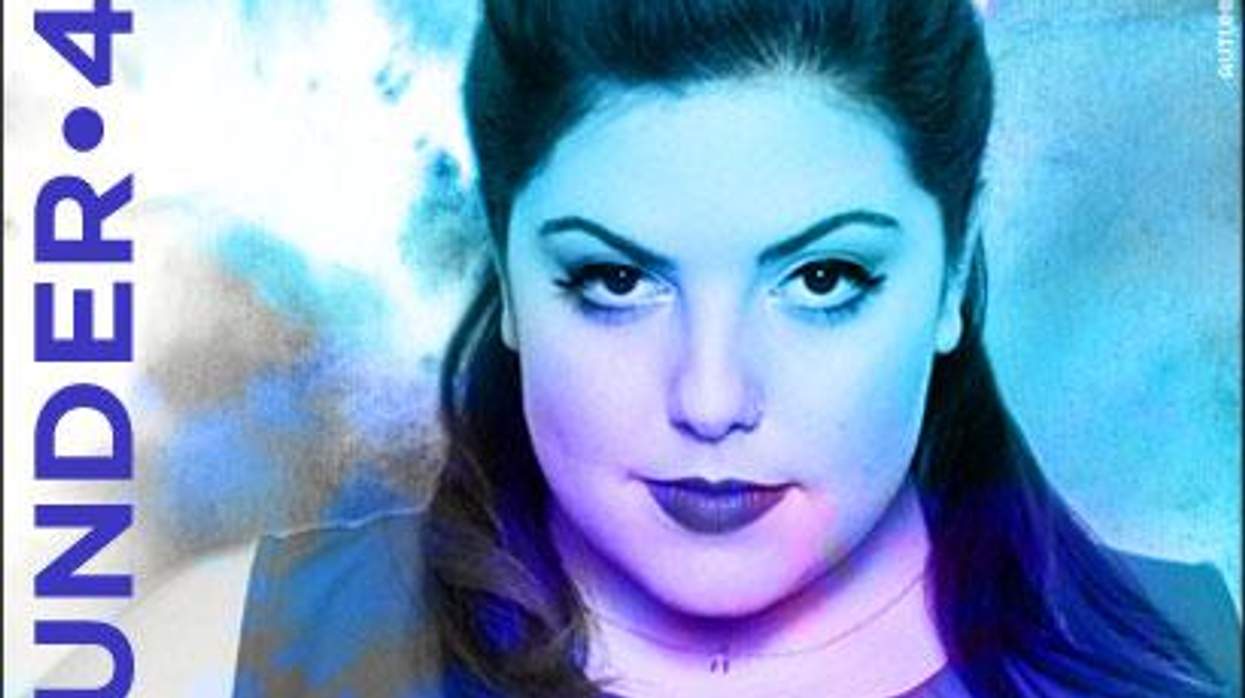Mary Lambert is not your average pop star. Sure, you've likely heard her angelic voice crooning out the poignant chorus to Macklemore's marriage equality anthem "Same Love." You may even have seen her more than holding her own alongside Madonna at the 2013 Grammy Awards and its mass wedding featuring same-sex, opposite-sex, and interracial couples.
But what this 25-year-old Seattle native hopes you're finding out is that she's made it her personal mission to leverage her skyrocketing notoriety to issues that aren't radio-friendly.
Lambert's music -- which she writes herself, only recently collaborating with others -- offers an unflinching, unfiltered window into her own experiences with mental illness, self-injury, body dysmorphia, rape, and homophobia.
"My goal is to bring a lot of these issues that so many people are already advocating for and talking about [into pop culture]," she says. "Whether it's body dysmorphia or eating disorders or just coming out, or exactly being who you are. [Countering] all of the mean people in your head, telling you to shut up, and live apologetically."
But Lambert's art isn't merely taking advantage of this moment when she has more notoriety than most plus-sized queer women could ever dream of. Her message is rooted in her own experiences, which get channeled through her classically trained voice to give a novel kind of exposure to heart-heavy topics.
"All of those are things that I used to suffer from, and be wracked with all the time," she continues. "And I've experienced so much joy and so much freedom once I let those go -- so it would be crazy for me not to see, how can I put this on, in everybody's faces so that they can't get away from it; in the same way that all the bad shit is in our faces all the time."
Lambert, who will release her debut full-length album this fall, is well aware that her music tackles issues that often get swept under the rug by mainstream popular music. She witnesses the impact her unfiltered style has each night she takes the stage.
"I go to the merchandise table and there's throngs of people, and they're crying," Lambert says. "And they're not crying, like 'Oh my God [it's Mary Lambert]!' They're crying because, you touched something really close to me, or that I haven't been able to feel, express. And to be someone's catalyst for that is really emotional."
But Lambert, a self-described chronic "over-sharer," has learned to wield the emotions evoked by her music to impart change not only on her fans, but, she hopes, on broader culture as well. One time, a friend observed that she wasn't a pop star, but a healer.
Instead, she says, "I feel like I'm like a healer in a pop singer's life."
"This is not about fat girls," she continues. "This is not about any of that. It's not about certain kinds of pride, it's just about yourself. It's about you. If people can find something that they love about themselves after going to one of my shows, then I am so addicted to that feeling. It's the most gratifying thing on earth."
While Lambert regularly encounters fans at her concerts who have had transformative experiences with her music, her efforts extend far beyond the microphone. Active on social media, Lambert launched the #BodyLove campaign, encouraging followers on Twitter and Instagram to share unedited photos of themselves, singing the praises of a particular body part each week. The campaign culminated with the music video release of Lambert's powerful track "Body Love," a two-part, spoken-word thesis dissecting the danger inherent in "trying to fit into social norms like last year's prom dress."
"The funny thing is women like us don't shoot," Lambert says in "Body Love."
"We swallow pills, still wanting to be beautiful at the morgue / Still proceeding to put on makeup / Still hoping that the mortician finds us fuckable and attractive / We might as well be buried with our shoes and handbags and scarves, girls / We flirt with death every time we etch a new tally mark into our skin / I know how to split my wrists to reveal a battlefield too / But the time has come for us to reclaim our bodies."
Ultimately, Lambert's message has universal resonance. When asked to boil down her mantra into a concise sentiment, Lambert doesn't hesitate.
"Fuck shame," she says. "Live unapologetically."
This is one of eight profiles that The Advocate released this week for the annual "40 Under 40" list. From now through Friday, August 8, readers are asked to vote on who you think should be on The Advocate's digital edition cover. Then the remaining 32 honorees will be released in August along with the new cover. Go to Facebook to vote now!





































































Charlie Kirk DID say stoning gay people was the 'perfect law' — and these other heinous quotes